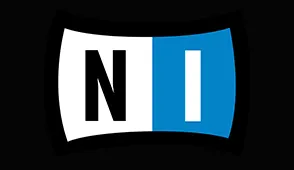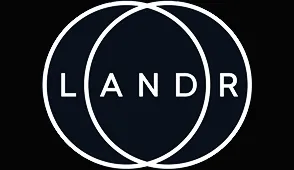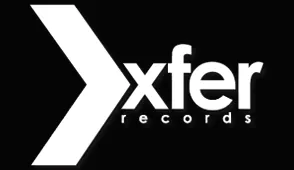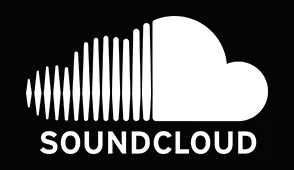Curious about how music production works and how to get started? Music production is turning an idea into a track through composing, arranging, recording, mixing and mastering. In this article we’ll break down each step and show you how to turn your ideas into professional sounding tracks.
Key Points
- Music production has 5 stages: composing, arranging, recording, mixing and mastering, each is crucial for a finished track.
- A producer must balance technical skills with creativity, communicate with artists and teams and manage budgets and schedules.
- Being a producer means learning music theory, sound design and using online resources to improve and stay competitive.
Note: Many electronic producers handle all the above themselves. They are the artist, composer, recording engineer, mixer and mastering engineer.
What is Music Production?
Music production is recording a song, it’s:
- Composing
- Arranging
- Recording
- Mixing
- Mastering
Each stage is a vital part of turning ideas into a finished product. Knowing each stage is key to making music.
A producers journey is:
- Defining the songs key elements
- Structuring musical ideas
- Capturing performances
- Refining the audio to make a cohesive track that is the song.
It takes both technical skills and creative vision, it’s a fun and rewarding industry that was born out of innovation.
Knowing the role of a producer and the equipment will give you an idea of what it takes to bring your ideas to life.
Let’s start with the role of the producer.
The Traditional Producer
A producer is the captain of the ship, overseeing everything from song selection to the final mix. They shape the music by turning raw material into a finished recording, ensuring the artist’s vision is fully realised.
This is key to producing music that resonates with the artist and the audience, as record producers play a big part in this process.
Communication is key for a producer, they work with artists, technical staff and other members of the production team.
Their responsibilities include:
- Scheduling recording sessions
- Managing budgets
- Getting the best performances out of musicians
All of this while keeping a creative and productive environment.Beyond the traditional roles music producers can also work as audio directors in video games or mixing engineers in studios, so the opportunities are endless. Whether it’s guiding an artist’s song or working on sound design the role of a music producer is as varied as it is important.
Music Production Equipment
Producing music requires the right tools. A computer with a Digital Audio Workstation (DAW) is the core of any setup, it’s the hub of music creation and editing. Quality headphones and monitor speakers are also essential for sound monitoring.
A MIDI keyboard and software plugins are invaluable for creating and arranging music, you can experiment with different sounds and virtual instruments. Investing in a quality audio interface will improve sound recording and playback quality.
The initial investment in music production equipment can be significant, often one to several thousand dollars, but the right tools will improve the quality of your recorded tracks.
Now that your production setup is ready let’s get into the production process.
The Process
Taking a song from an idea to a finished product involves several stages:
- Composing
- Arranging
- Recording
- Mixing
- Mastering
Each stage has its own challenges and techniques but together they create an edited workflow that many producers follow in songwriting.
Keeping momentum is key to staying creative throughout the production process.
Let’s go through each stage, starting with the foundation of any song: composing and arranging.
Composing and Arranging
Composing is where the magic happens. During this phase a music producer defines the song’s key, tempo and time signature, the foundation of the entire track. This is where the brainstorming and solidifying of the core musical ideas that will drive the song happens.
Once the composition is in place the focus shifts to arranging. This is where you structure the musical ideas into sections like verses, choruses and bridges, so the song flows from start to finish. Producers often layer different elements like harmonies and rhythms to create a rich and dynamic arrangement.
Using MIDI and sound design plugins allows producers to experiment and create unique sounds. Experimentation is key to creating memorable tracks. Once the composition and arrangement are in place it’s time to capture these ideas in recording sessions.
Recording Sessions
Recording sessions is where the musical ideas come to life. These can involve capturing live performances depending on the project. A digital audio workstation (DAW) is the central hub for these activities, where you can record, edit and manipulate audio and MIDI data.
Recording sessions require planning, understanding technical requirements and preparing the studio environment. Audio engineers are vital in ensuring sound quality, using their skills to get the best possible performances.
Now the recordings are in place it’s time to mix the music.
Mixing Music
Mixing is the art of combining individual tracks into one cohesive whole. This involves balancing levels, panning and applying effects so all tracks work together. This is where the producer’s creative input can really shine as they shape the sound of the final mix.
Using sound design tools can help you achieve unique audio textures that enhance the production. Techniques like subtractive, additive and granular synthesis can broaden your sound palette and make your tracks stand out.
Audio engineers are essential in the mixing process, using their expertise to get the most effective mix. Now the mix is complete it’s time to master the music.
Mastering Music
Mastering is the final stage of producing music, preparing the finished mix for distribution. This stage ensures the track sounds the same across different playback systems and formats, from streaming platforms to vinyl records.
A mastering engineer uses specialized equipment and techniques to enhance the audio and get it to translate across different systems. The master is crucial for getting the best sound quality for all potential listeners.
The goal of mastering is to give the track a polished professional sound that meets industry standards. This involves fine tuning the audio to get clarity, balance and cohesion so every element of the mix shines.
Now the mastering is complete the track is ready to go. But before we get to that let’s go through how you can develop your skills as a producer.
Developing Your Skills as a Producer
Developing your skills as a music producer is key to creating great tracks and being competitive in the industry. This means not only understanding the technical side of production but also learning music production.
One way to develop your skills is by learning music theory which provides a foundation for composing and arranging music.
Let’s dive in.
Music Theory
Music theory is essential for any music producer. It helps you analyze and create music, provides a framework for composing and arranging tracks. By learning music theory you’ll gain a deeper understanding of how different musical elements work together so you can create harmonious and compelling songs.
Whether you’re working on your own music or collaborating with other artists a solid grasp of music theory can really improve your production skills. It’s a fundamental element every aspiring producer should invest time in mastering.
Sound Design Techniques
Sound design is a big part of music production where you can create unique and memorable sounds. By mastering sound design techniques you can create unique audio textures that enhance your tracks and make them stand out.
Online platforms offer courses in sound design and production techniques, valuable resources for aspiring producers. Engaging with community feedback through online tutorials can also speed up your learning process.
With a good understanding of sound design you’ll be better equipped to create innovative music.
Online Courses and Tutorials
Taking online courses and tutorials is a great way to get structured learning and expert insights into producing music. Platforms like FL Studio and Ableton Live offer guides and tools for beginners, so you can start your music production journey.
Experienced producers often do workshops and mentoring sessions, providing valuable guidance and feedback as a producer. By taking advantage of these resources you can refer to this guide to speed up your learning and develop your skills more in each session.
Now let’s go through the career opportunities for producing music.
Career Opportunities in Music Production
Music production offers many career opportunities from being an artist or composer to sound designer or audio engineer. Aspiring producers can explore different genres so it’s a diverse and rewarding career.
Most top producers work either freelance or in-house for record labels and recording studios. To have a successful career in music production you need to network, continually develop your skills and stay up to date with industry trends.
Let’s look at some specific roles in the industry.
Mix Engineer
Mix engineers are key to the music industry, involved in the mixing process. Notable mix engineers like Chris Lord-Alge or David Pensado have worked with legendary artists, so you can see the impact and importance of this role. Mix engineers work on a wide range of projects from albums to video games to films, so it’s a varied and rewarding career.
Having musical experience can be helpful but not essential to succeed as an mix engineer. With the right skills and dedication anyone can excel in this field.
Next let’s look at commercial production.
Commercial Production
Commercial production involves creating jingles, soundtracks and audio branding for various media, including ads and corporate videos. Professionals in this field often work closely with brands to create soundtracks for advertising campaigns. This role requires creativity and technical skills as producers need to tailor their productions to the specific needs of their clients.
Working in commercial production can be a lucrative and exciting career path for skilled producers. Finally let’s look at opportunities in teaching and mentoring.
Teaching and Mentoring
If you have a music production background you can teach theory and practical skills to students. Many music production teaching positions require industry experience.
Now we’ve covered career opportunities let’s look at how to stay creative and productive in your music production journey.
Staying Creative and Productive
In the fast lane of music production staying creative and productive is key to success. Practicing music production techniques regularly can really improve your skills over time. Consistency, feedback and collaborating with other musicians are essential for continuous improvement.
A consistent workflow breeds creativity. Including breaks and physical activity in your routine can boost both creativity and productivity. Let’s look at how to balance work and play and manage projects.
Balancing Work and Play
For a music producer balancing work and creative elements is key. Deadlines can kill creativity but including leisure activities in your work schedule can boost both productivity and fun.
Including fun and relaxation into the production process can help boost overall creativity. Whether it’s taking a break to play an instrument or doing another creative activity, having a balance between work and play can lead to more inspired and productive sessions.
Managing Projects
Meeting deadlines is key to completing projects successfully and in line with marketing schedules. Good project management is about planning, setting realistic goals and clear communication with the production team.
By being organized and focused you can manage multiple projects efficiently and deliver high quality productions on time.
Releasing Your Music
Once you’ve mastered the production process the next step is to release your music. Choosing the right distribution platform is crucial as each platform has different audience demographics and marketing tools. Digital distribution options like Spotify, Apple Music and Bandcamp can get your music heard by a wider audience.
To maximize your reach combine good distribution with strong promotion. Leverage social media, collaborate with influencers and engage with your audience through live performances are effective ways to promote your tracks and get your music in front of your target audience.
Choosing Distribution Platforms
Digital distribution services like:
These services allow independent artists to release music on major streaming platforms. Using these services is key to getting visibility and reaching your audience.
Each platform has different benefits so choose the one that best fits your goals and audience.
Promoting Your Tracks
Releasing singles instead of full albums helps maintain audience engagement and visibility on streaming platforms. Collaborating with other artists on tours can introduce your artist’s music to new audiences and expand your reach.
Combining digital and traditional promotion can get your tracks in front of a broader audience.
Summing it up
Mastering music production is a journey that involves understanding the production process, investing in the right equipment and continually developing your skills. From composing and arranging to recording, mixing and mastering each stage is crucial to bringing your musical ideas to life. It can be challenging but extremely rewarding.
By being creative, productive, balancing work and play and managing projects you can have a successful career in music production. Take advantage of the opportunities in this industry from audio engineering to commercial production and teaching. With hard work and passion you can produce music that resonates with the world.
FAQs
What is a music producer?
A music producer is basically the brain behind a song, overseeing and guiding its creation and recording. They make sure everything comes together to create the final sound we hear.
What do bedroom producers do?
Bedroom producers handle songwriting, sound design, arrangement, mixing and mastering. It’s all about creating tracks from home!
What do I need to get started in music production?
To get started in music production you really only need a computer, a DAW to create and edit your music and a good pair of headphones. With these basics you’re ready to start your creative journey!
Can I learn music production with no musical experience?
Yes! Many producers started with no musical background and you can pick up songwriting and melody writing as you go.
































